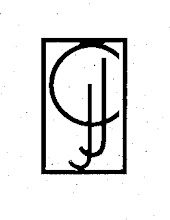 I’ve just turned the last page of Dark Horses and Black Beauties. I’m glad I read it, but it was a workout in facing the facts about human nature and our dearth of kindness. I shudder to imagine the overwhelming amount of depressing and shocking minutiae author Melissa Holbrook Pierson had to sift through for the book. Here’s a single paragraph—sans stomach-turning descriptive details—to consider:
I’ve just turned the last page of Dark Horses and Black Beauties. I’m glad I read it, but it was a workout in facing the facts about human nature and our dearth of kindness. I shudder to imagine the overwhelming amount of depressing and shocking minutiae author Melissa Holbrook Pierson had to sift through for the book. Here’s a single paragraph—sans stomach-turning descriptive details—to consider:The toll of horse life on the battlefields of human wars can hardly be conceived. With Napoleon in Russia, one division lost 18,000 of 43,000 mounts in the space of two months; in the 1812 retreat from Moscow, 30,000 horses died, mainly from cold and privation. The Peninsular War caused Wellington to call the Peninsula “the grave of horses”: the 14th Light Dragoons alone lost 1,564 horses (of 1,840 total), while their loss of men was 654. The Boer War cost the lives of some 500,000 horses, mules, and donkeys (the Australians shot all their surviving Walers over the age of twelve when the war ended, since they couldn’t be returned home due to quarantine restrictions). In World War II, Germany lost an average of 865 horses per day over the war’s two thousand days—52,000 in the Battle of Stalingrad alone. (Entire libraries of books are written about this war without any mention of the millions of animals who perished.) One day in 1939 the Pomeranian Cavalry Brigade lost 2,000 horses in thirty minutes; a witness described the road to Warsaw as lined with thousands of dead and dying horses. The annihilating charge of the Polish cavalry against German Panzer tank divisions stands today as the very emblem of grotesque futility. You will note that this very partial accounting begins only with the nineteenth century.
My reading since September has centered on animals, yet revealed some of the darker choices of humankind. My first impulse was to skip the awful passages of the books, but then I would have remained uninformed. My second urge was to share what I’d learned on Lull: explain my sorrow, which would partially explain my infrequent posts. But that would have required further examination of the material. So instead, I just continued reading and feeling trapped inside a vortex of suffering—easily imagining the fear and pain inflicted upon the creatures and characters of both the nonfiction and fiction of my reading lineup. (See books listed at right in “Current Reading Lineup” and “Books Read in 2010.”)
The price of a rescue story i
 s being made aware of the cruelty or neglect that necessitated the intervention. But some of us pay again in the form of guilt and shame for either not knowing what to do or not doing enough in such situations.
s being made aware of the cruelty or neglect that necessitated the intervention. But some of us pay again in the form of guilt and shame for either not knowing what to do or not doing enough in such situations.I’ve decided to take a break from the bleak and turn to short fiction from a few favorite novelists. Otherwise, my ability to recognize and savor beauty in the everyday may fade. And then, what’s the point?
[See the story behind “Hitler’s Horse.”]



No comments:
Post a Comment